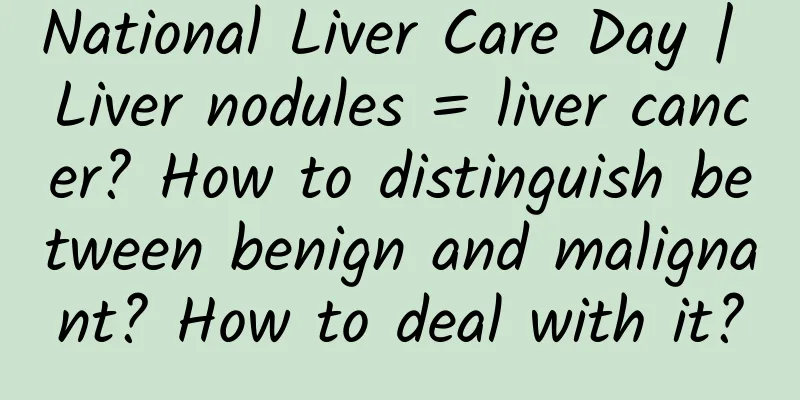49 middle school students fell to their deaths in Chengdu, sparking heated discussions! Many people ignore these "signals" before teenagers commit suicide...

|
According to Xinhua News Agency, the note that the student who fell to his death from No. 49 Middle School in Chengdu left to a female student before he jumped off the building included the following content: "I have cried three times a week recently, cut my wrists several times, and gone to the rooftop." The official report stated that Chengdu No. 49 Middle School had weak links in terms of psychological care for students. Weibo screenshot In recent years, the phenomenon of teenage suicide has occurred frequently. In addition to expressing regret, we can't help but ask: Why would young people in the prime of their lives choose suicide to give up their beautiful lives? The "Global Youth Health Issues" released by WHO points out that suicide is the third leading cause of death among adolescents aged 10-19 years old worldwide. Why do teenagers have suicidal tendencies? What symptoms should parents pay attention to? This article takes you into the psychology science class for teenagers. Why do teenagers become suicidal? When children enter puberty, some changes will occur in their body and brain. Teenagers' bodies gradually mature, but their psychological development is not yet mature. Their emotions are easily changeable and impulsive, and they are unable to manage and control their emotions. This is a natural stage of adolescent development. It is difficult for teenagers to cope with various pressures and temptations, such as illness, academic failure, breakups, and the temptation of money. If there is a distortion between the problems teenagers face and the solutions they should take, they are more likely to develop mental health problems. Young people have no life experience and do not know that the difficulties they encounter are temporary. Some may think that they would rather die than face the difficulties they are facing. Those who die by suicide are unable to see that there are other ways they could have changed their lives - suicide is a permanent avoidance of a temporary problem, not a solution. What are the risk factors for teen suicide? Risk factors for adolescent suicide include mental illness such as depression, loss of a loved one, conflict with close friends or family, physical illness, physical or sexual abuse, alcoholism or drug abuse, pregnancy, being a victim of school bullying, a family member or friend who has attempted suicide, low self-esteem, poor academic performance, abandonment, online loans, emotional disorders or a family history of suicidal behavior. Suicidal thoughts in children are often impulsive and may be related to sadness, confusion, anger, or attention deficit and hyperactivity disorder. Many parents are completely unaware that their children are experiencing suicidal thoughts and behaviors. In fact, the following information is all warning signs of teenage suicide. What behaviors should teenagers pay attention to? Preoccupation with death or expression of suicidal thoughts; —For example, saying things like “I don’t want to live anymore” or “I won’t be a problem to you anymore.” Withdrawal from social interactions; ——Becoming reluctant to go out and see friends. mood swings and personality changes; —such as nervousness, anger, impulsive or reckless behavior. Not concerned with appearance or health, and loves to do risky things; Alcohol or drug abuse, self-harming behavior; —Feeling pessimistic or hopeless. Frequent irritability or unexplained crying; Changes in normal lifestyle habits (eating and sleeping); Low self-esteem, lack of interest; A sudden upsurge of spirits may mean the decision to end the pain of life by suicide; Keep a diary that no one else can read, etc. If your child exhibits the above symptoms, you should pay close attention and consider seeking professional medical attention. How to adjust the psychological emotions of teenagers? A good parent-child relationship is the guarantee of children's mental health. Experts suggest that children should be guided to understand that everyone faces confusion and challenges at different stages of life. Learn to listen and observe. For young children, you can ask about their physical condition, such as stomachache, headache, etc., and observe their emotional changes, such as whether they become upset or angry. For older children, you can ask them how they feel. If you notice your child is unhappy, anxious, or restless, ask and offer help instead of waiting for your child to come to you. Don't be afraid to talk to your children about mental health and suicide. Some people think that talking to children about suicide or asking them if they have suicidal thoughts will encourage them to commit suicide. In fact, talking about suicide will not plant suicidal thoughts in your child's mind. Of course, you should be careful about how you do it. It is recommended to ask open-ended questions, i.e. questions that cannot be answered with a "yes" or "no". This lets them know that their parents care about them and are willing to talk to them. For example, how is your child doing? What's going on in their world lately? What are they concerned about? When your child starts talking, don't interrupt or rush to offer them solutions, which often shuts down the conversation. Listen attentively and without judgment. Don't say, "You should do this, why don't you do this?" If your child doesn't plan to talk to you, you should tell him (her): "I will listen whenever you want to talk, and I will support you no matter what difficulties you face." Let your child believe in your love for him. Encourage your child to be with friends and family and participate in more social activities to help your child rebuild confidence. Healthy lifestyle, proper exercise, regular sleep, stay away from alcohol and drugs, and reduce the availability of suicide tools. Hospitals and schools should establish mental health care networks and promote mental health knowledge. Provide early risk prediction and psychological counseling for high-risk teenagers (such as those who experience school bullying, lack family warmth, have emotional instability, depression, tics and ADHD, etc.). In short, as parents, we should pay attention to our children’s mental health and seek professional assessment and treatment when necessary. We call on everyone not to discriminate against teenagers with symptoms of depression, and patients with related diseases should not feel ashamed of their illnesses. They should actively cooperate with doctors and receive regular anti-depressant treatment, and everything will be fine. Expert of this article: Zhao Wei, deputy chief physician of Department of Neurology and Sleep Medicine Center, Tianjin University Teda Hospital Reviewer of this article: Cao Haiyan, PhD in Psychiatric Psychology, Tianjin Medical University Source: Science Popularization China |
<<: Shenjun AKK, has the mechanism for weight loss and blood sugar control been found?
>>: What foods are good for a sore throat? What fruits are good for a sore throat?
Recommend
What are the symptoms of early miscarriage due to ectopic pregnancy?
Normally, the embryo implants in the uterus, but ...
Should I steam eggs with cold water or boiling water? How can I steam eggs without them smelling fishy?
Steamed eggs are salty and fresh, rich in nutriti...
Black blood clots during pregnancy
When we first learned that the female member of t...
What are the benefits of drinking crucian carp soup during pregnancy
As we all know, there are many types of freshwate...
Normal value of gestational sac at 12 weeks of pregnancy
The 12th week of pregnancy is a time of embryo de...
Red pimples on girls' chest
Today's pace of life is getting faster and fa...
What causes small pimples on women's lower body?
Small bumps on women's private parts can make...
Is there a high chance of miscarriage caused by motherwort?
The medicinal herb Motherwort should never be tak...
[Fat Bear Science] 15% of the population suffers from fatty liver. Please listen to the question: How far is this disease that many people do not pay attention to from liver cancer?
In recent years, the prevalence of fatty liver di...
How to make your period come faster?
For normal women, they will have menstruation alm...
What is the nine-valent vaccine? Why is it so hard to get a shot? Be sure to keep your eyes open when making an appointment! (Part 2)
In this issue, we will specifically talk about th...
What to do if your coccyx hurts during pregnancy
Nowadays, many pregnant women suffer from coccyx ...
What causes green vaginal discharge?
Leucorrhea is a barometer of women's physical...
[Medical Q&A] What are the dietary precautions in autumn?
Author: Hu Bingjie Zhou Yi Xi'an Medical Coll...
Can I eat onions during menstruation?
Onion is a food that people often eat. Some peopl...









